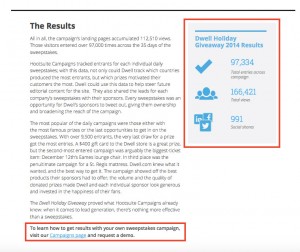
Free-Photos / Pixabay
I’ve been doing some advisory board work lately.
This is fun because I get a chance to help root out some of the most common strategy and marketing issues before they hamstring the startup team and start them down a path that can end in a project failing without having the proper opportunity.
As I was working through my thinking, I got onto the subject of what are some of the basics that a startup founder or team need to know to get started on the right foot.
Here are 5 things that I think all startups should know about marketing and strategy before they get too far into their project.
Customer Focused, Not Product Focused:
This in no way means that I am anti-product. I love a good gadget, a great product, and something that fills needs I didn’t know I had.
The challenge for most startups isn’t that they are solving unfulfilled needs, but that they are filling a need that their customers don’t care about enough to find valuable.
In the school of marketing that I follow, the starting point of any discussion is around Market Orientation. Which is just a fancy business school word to describe focusing on the customer and what they want, need, or are looking for.
A product-oriented business can hit some amazing home runs like 3M did with the Post-It Note, but the challenge is that this doesn’t happen all that often and in most cases, we end up with a lot of similar Pomodoro timer apps, much the same only different juicers or other products that slightly improve on some product folks are already using, but don’t solve a problem that customers really feel needs solving.
By focusing on the customer, you are able to understand what the customer wants or needs, where the point of pain comes, and design your solution around what people are already feeling out for or searching for but not finding a solution.
You may end up in a similar spot, but looking through the eyes of the customer from the start can expedite your ability to succeed.
Strategy Before Tactics:
In too many marketing meetings and departments, everything is about coloring in.
That’s tactics.
Strategy is two important decisions:
- Where will you compete?
- How will you win?
You have to know what your market looks like, who your customer is, and which folks you are targeting before you make any other decisions.
Then you must know what your competitive advantage is, otherwise known as your position.
Positioning comes down to two options: about or against.
What are you about? Or, what are you better than?
In all instances, you have to put these decisions ahead of any conversation about the marketing mix of product, price, place, and promotion.
Strategy first. Tactics follow.
Your Price Is Probably Your Most Important Decision:
I was reading where the marketing department has shirked the responsibility for pricing decisions in far too many organizations!
Lame!
Because pricing is the most important marketing decision you can make!
Seriously!
It is the point in the marketing process where you capture some of the value you have been creating for your customers.
There are a few things to keep in mind about pricing to help guide you:
- Most businesses tend to underprice.
- You should be doing research on pricing like you do research on your market.
- Don’t discount!
The key thing for startups to remember is that the pricing decision is of the ultimate importance. Research shows that boosting your price 1% can grow your profits by around 12%. That’s real impact.
Get pricing correct!
Brand Is Everything:
Branding gets thrown around in such a way that the term has come close to meaning BS!
But your brand is simply the accumulation of all the good and bad interactions that folks have with your business. This means that you have to be thoughtful about all the touchpoints you create and the way that you manage the relationship with your customers and prospects.
For this area, you have to recognize that a touchpoint is like going to the bank: you can deposit some good stuff in there or you can make a withdrawal through a bad interaction.
If you have too many withdrawals, your brand starts to carry a bad feeling about it. On the other hand, if you consistently deliver a great experience, you end up having a strong brand.
That simple!
Real Marketers Don’t Guess:
As the kids say, I said what I said.
But the reality is that successful marketing is driven by knowledge, not guessing.
This means ethnography, qualitative research, quantitative research, focus groups, surveys, and other inputs.
You have to build your marketing efforts on a foundation of knowledge, not BS.
Like I’ve taken to saying regularly: “Real Marketers Don’t Guess!”
These aren’t all the things that startups need to know, but start here and we can get deeper later.
Business & Finance Articles on Business 2 Community
(41)








